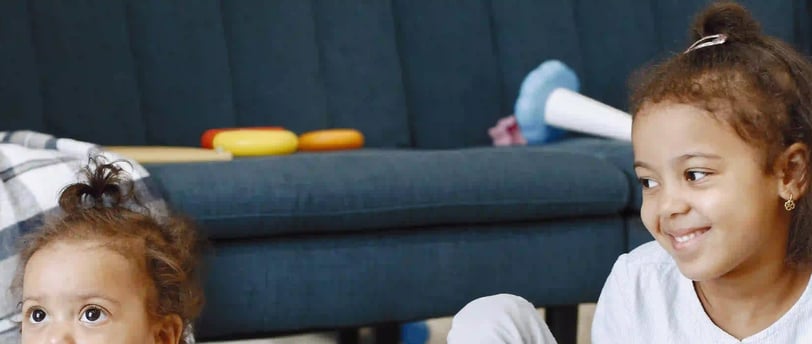Why Play is Essential for Kids’ Growth
Discover how learning through play fosters children's cognitive, emotional, and social development, helping them grow into confident, well-rounded individuals.
10/11/20243 min read


In today’s fast-paced world, it can be easy to overlook the significant role that play has in a child’s development. However, learning through play is not only enjoyable for children but also crucial for their cognitive, emotional, and social growth. Play helps children explore their environment, develop problem-solving skills, enhance creativity, and foster social interactions—all while having fun. Here’s why incorporating play into your child’s routine is more important than ever, and how it can shape their development.
1. Cognitive Development
Through play, children naturally hone their critical thinking and problem-solving skills, enabling them to navigate challenges and explore new ideas effectively. Whether they are building with blocks, solving puzzles, or role-playing, they are constantly engaging their minds in new and creative ways. Games that involve strategy, such as board games or brain teasers, teach children how to plan, make decisions, and assess outcomes. Activities like these not only enhance their intellectual abilities but also promote persistence, focus, and the ability to think logically.
2. Social and Emotional Skills
Play is an essential way for children to learn how to interact with others and build social relationships. Whether it's with siblings, friends, or parents, playtime fosters important skills such as cooperation, communication, and negotiation, helping children build strong social connections. Through collaborative play, children learn the importance of teamwork, sharing, and empathy. They also begin to understand different emotions—both their own and those of others—helping them develop emotional intelligence and social awareness from a young age.
3. Creativity and Imagination
Creative play is one of the most engaging and rewarding ways for children to express themselves, allowing them to explore their imagination and emotions freely. Activities such as drawing, crafting, or imaginative role-playing allow children to explore different ideas and perspectives. They can transform simple objects into magical worlds or invent stories and characters, fostering their creativity and expanding their imagination. This type of play encourages out-of-the-box thinking and problem-solving in ways that structured learning cannot.
4. Physical Development
Play is also crucial for physical development. Active play, such as running, climbing, or dancing, helps children improve their coordination, balance, and motor skills. Activities like building with blocks or playing with small toys enhance fine motor skills, which are essential for writing, dressing, and other daily tasks. Outdoor play, in particular, allows children to connect with nature, develop their gross motor skills, and engage in healthy physical activity, all while having fun.
5. Language and Communication
Play often involves language, whether it’s talking with other children, making up stories, or following game instructions. Through play, children expand their vocabulary, learn new concepts, and practice effective communication. Role-playing games, in particular, allow children to experiment with language in different contexts, boosting their ability to express ideas clearly and creatively.
6. Learning Through Mistakes
One of the key benefits of play is that it provides a safe environment for children to make mistakes. Whether they are constructing a tower of blocks that falls or losing in a game, play helps children understand that failure is part of the learning process. It teaches them resilience, persistence, and the importance of trying again—skills that are essential throughout life.
7. Building Independence
When children engage in free play, they learn how to entertain themselves and make decisions on their own. This independence fosters self-confidence and helps children develop a sense of responsibility, as they learn to make decisions and solve problems on their own. As they experiment with different types of play, children also discover their own interests and talents, allowing them to explore their individuality.
Learning through play is a powerful tool that offers children far more than just entertainment. It is a holistic approach to development, nurturing their cognitive abilities, social skills, emotional intelligence, and physical health. By encouraging your child to engage in a variety of play activities, you can support their growth in all these areas while creating a joyful, enriching environment for them to explore and learn. As parents and caregivers, ensuring that playtime is an essential part of daily life is one of the most effective ways to foster well-rounded development in our children.
Connect with us on social media!
info@extremeshop.com
© 2024. All rights reserved.


